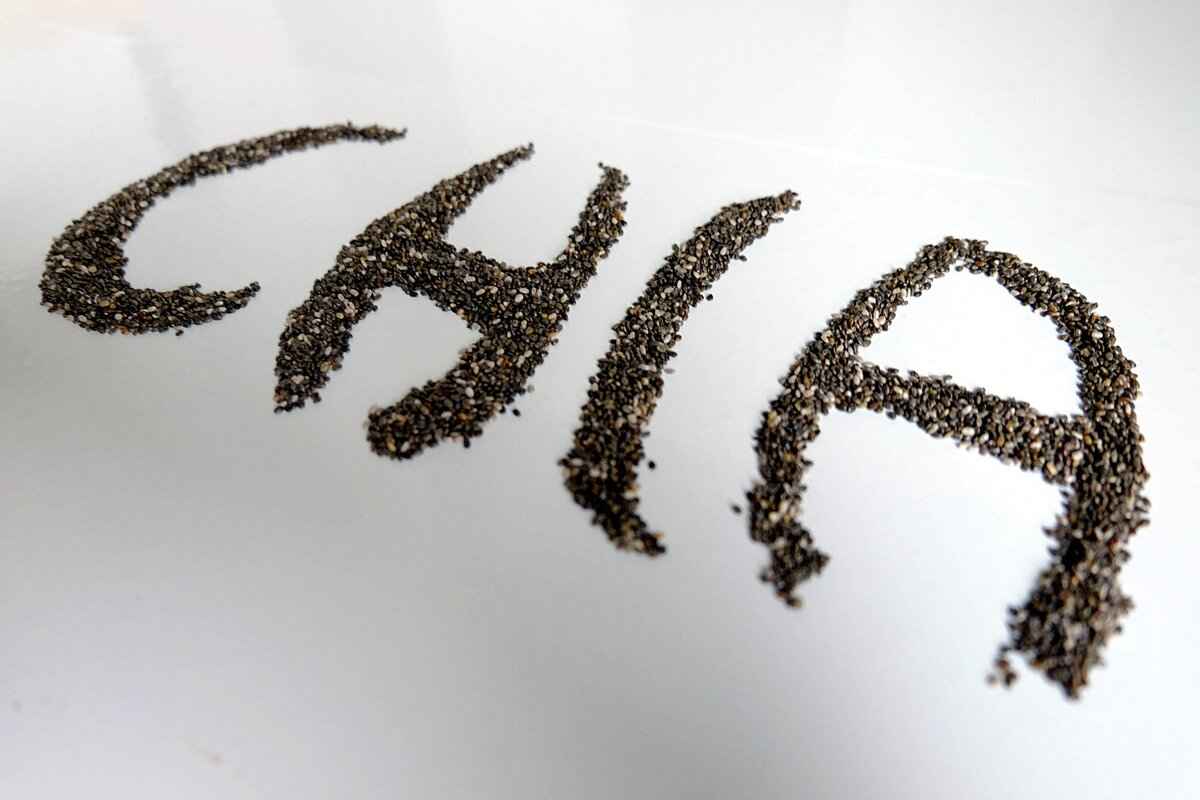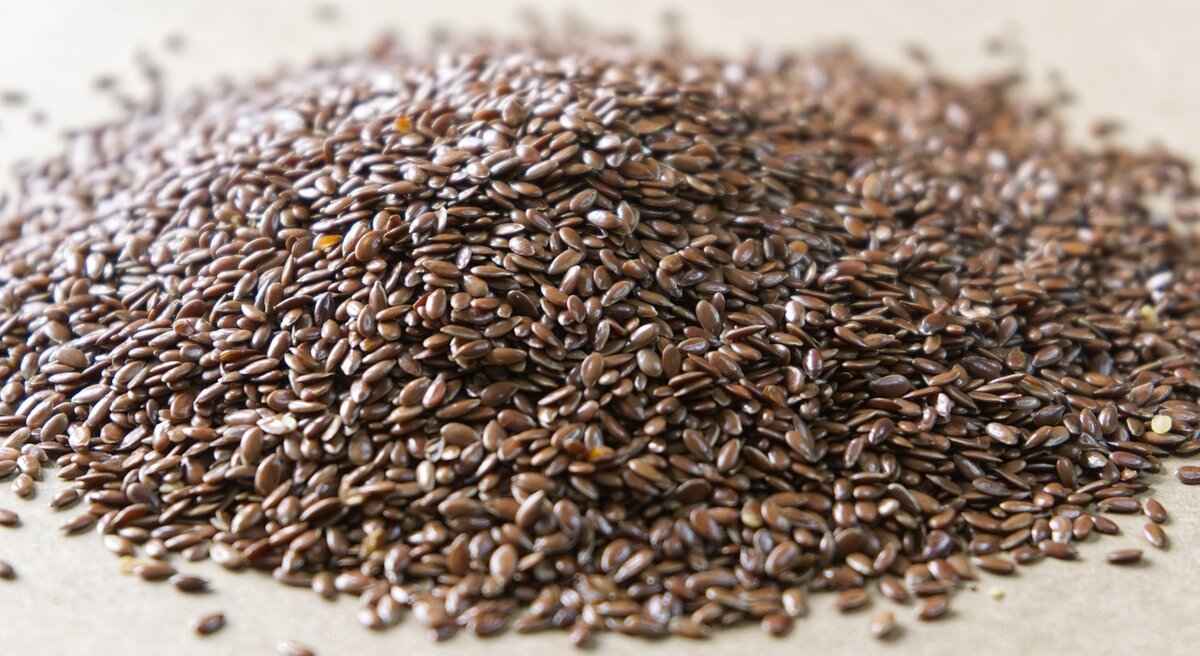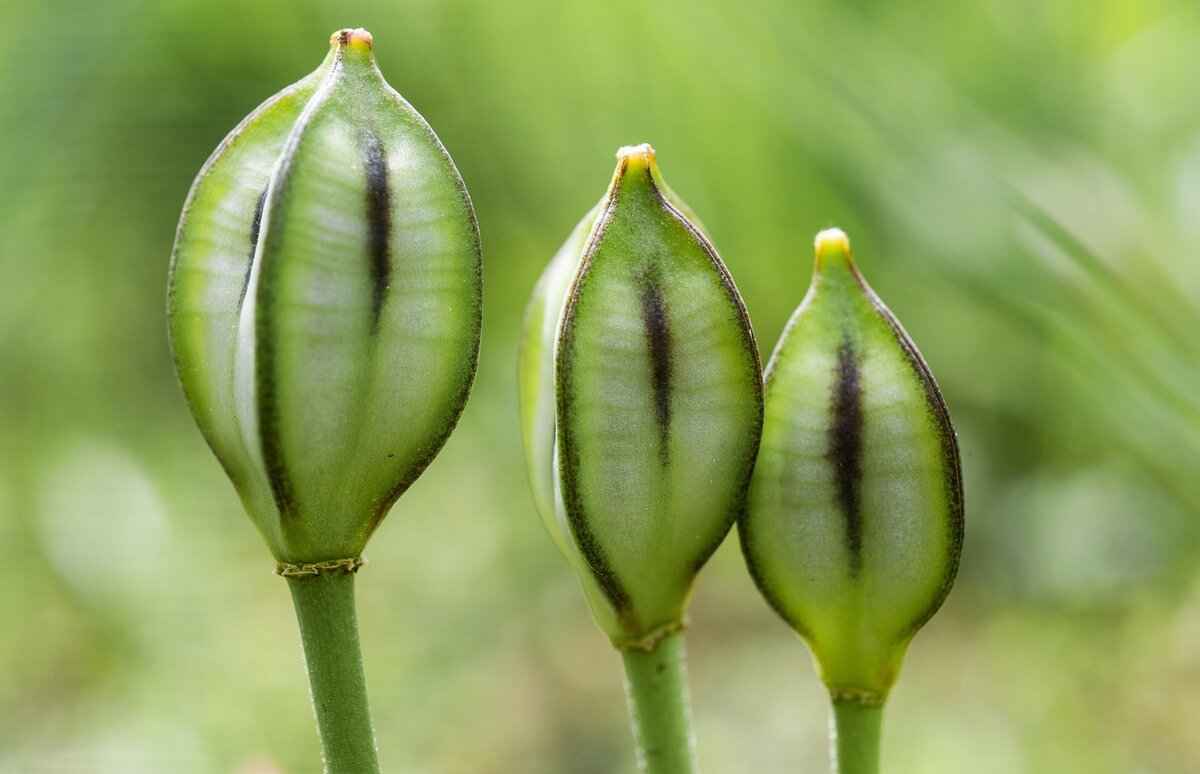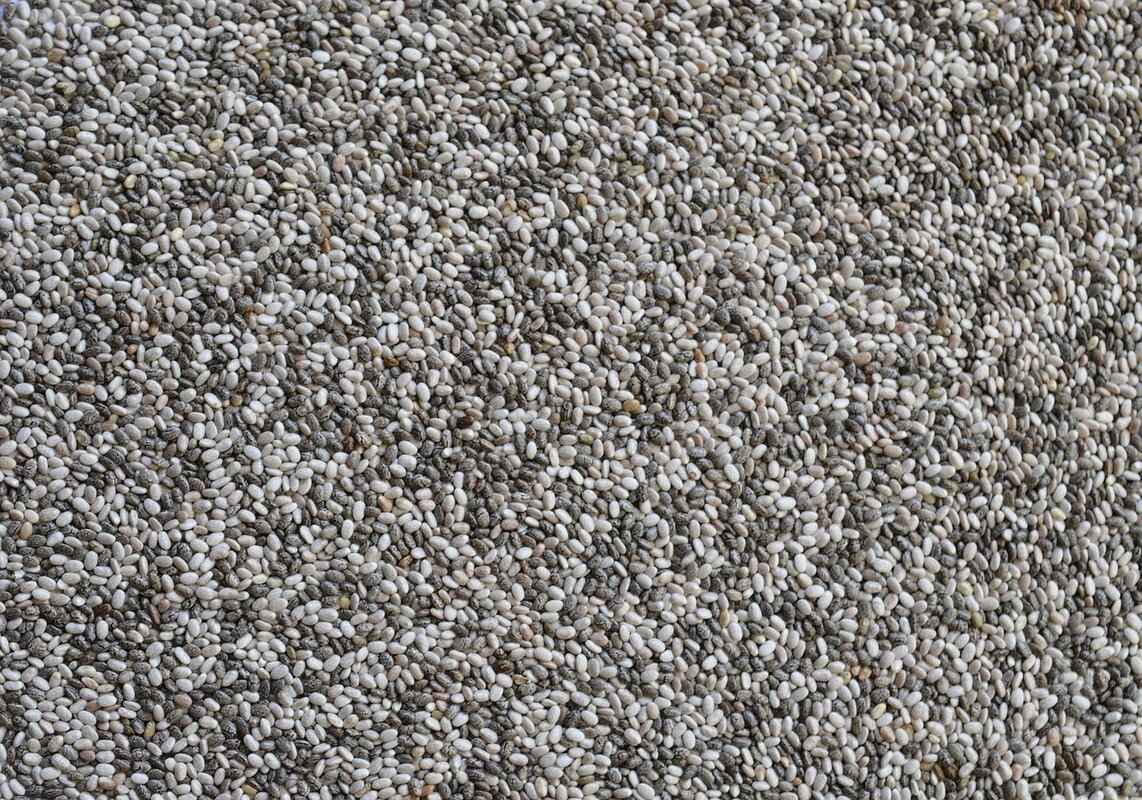Chia Seed Protein has gained significant attention in recent years, particularly among those adopting plant-based diets. This article delves into the nutritional benefits of chia seed protein, its importance in maintaining a balanced diet, and practical ways to incorporate it into daily meals.
Chia seeds are small, black or white seeds derived from the Salvia hispanica plant, native to Mexico and Guatemala. These tiny seeds are a nutritional powerhouse, rich in protein, fiber, and omega-3 fatty acids. Their unique properties make them an excellent addition to any diet, particularly for those seeking plant-based options.
Protein plays a crucial role in the body, contributing to muscle repair, hormone production, and immune function. For individuals following a plant-based diet, understanding the significance of protein is essential to meet their nutritional needs without relying on animal products.
Chia seeds offer approximately 4 grams of protein per 2 tablespoons. This makes them a valuable source of protein for vegetarians and vegans looking to enhance their protein intake. Additionally, their high fiber content aids in digestion and provides a feeling of fullness.
Chia seed protein is associated with numerous health benefits, including:
- Improved Digestion: The high fiber content promotes healthy digestion and regularity.
- Enhanced Heart Health: Omega-3 fatty acids contribute to cardiovascular health by reducing inflammation and lowering blood pressure.
- Better Blood Sugar Control: Chia seeds can help stabilize blood sugar levels, making them beneficial for individuals with diabetes.
Incorporating chia seeds into your meals is simple and versatile. Here are some practical ideas:
- Chia Seed Pudding: Combine chia seeds with your choice of milk and let it sit overnight. Top with fruits, nuts, or sweeteners for a delicious snack.
- Smoothies: Add chia seeds to your smoothies for an extra protein boost and a thicker texture.
- Salads and Baked Goods: Sprinkle chia seeds on salads or mix them into your favorite baked goods for added nutrition.
While chia seeds are generally safe, it is important to consume them in moderation. Overconsumption can lead to digestive issues, such as bloating or gas. To avoid these problems, ensure you drink plenty of water when consuming chia seeds.
When comparing chia seeds to other plant proteins, such as hemp or pea protein, it’s important to consider their unique nutritional profiles. Chia seeds are particularly high in fiber and omega-3 fatty acids, while hemp seeds offer a higher protein content. Together, these seeds can complement a balanced diet, providing a variety of essential nutrients.
Finding quality chia seeds is crucial for maximizing their health benefits. They can be purchased from health food stores, online retailers, or in bulk at grocery stores. Look for organic options to ensure the seeds are free from pesticides and additives.
In conclusion, chia seed protein is an invaluable addition to any plant-based diet. With its numerous health benefits and versatility, it’s easy to see why these tiny seeds have become a favorite among health enthusiasts.

What Are Chia Seeds?
Chia seeds are small, oval-shaped seeds that originate from the Salvia hispanica plant, which is native to Mexico and Guatemala. These tiny seeds have gained significant popularity in recent years due to their impressive nutritional profile and versatility in various culinary applications. They are often hailed as a superfood because they are rich in essential nutrients that can benefit overall health.
One of the most notable aspects of chia seeds is their high content of omega-3 fatty acids, specifically alpha-linolenic acid (ALA). This essential fatty acid is crucial for heart health and has anti-inflammatory properties. Additionally, chia seeds are an excellent source of dietary fiber, with about 11 grams of fiber in a 28-gram serving. This fiber content aids in digestion and promotes feelings of fullness, making chia seeds a popular choice for those looking to manage their weight.
Chia seeds are not only rich in omega-3 fatty acids and fiber, but they also contain a variety of other vital nutrients. For instance, they are a great source of protein, providing approximately 4 grams per 2 tablespoons. This makes them an excellent addition for individuals following plant-based diets, as they help meet daily protein requirements without the need for animal products.
Additionally, chia seeds are packed with essential minerals such as calcium, magnesium, and iron. These minerals play a crucial role in maintaining bone health, muscle function, and overall metabolic processes. The combination of these nutrients makes chia seeds a powerhouse food that can contribute to a balanced diet.
The health benefits of chia seeds extend beyond their nutritional content. Research has shown that incorporating chia seeds into your diet can lead to improved heart health. The high fiber content can help lower cholesterol levels and reduce the risk of cardiovascular diseases. Furthermore, the omega-3 fatty acids in chia seeds are known to support brain health and cognitive function.
Another significant benefit of chia seeds is their ability to help regulate blood sugar levels. The soluble fiber in chia seeds slows down the absorption of sugar in the bloodstream, which can be particularly beneficial for individuals with diabetes or those at risk of developing the condition. This property also contributes to better energy levels and reduced cravings throughout the day.
Incorporating chia seeds into your daily meals is simple and versatile. Here are a few practical ideas:
- Chia Seed Pudding: Mix chia seeds with your choice of milk or plant-based alternatives, add sweeteners or fruits, and let it sit overnight for a nutritious breakfast or snack.
- Smoothies: Blend chia seeds into your favorite smoothies for added texture and nutritional benefits.
- Baked Goods: Add chia seeds to muffins, bread, or pancakes for a nutrient boost.
- Salads: Sprinkle chia seeds on salads or incorporate them into dressings for added crunch.
While chia seeds are generally safe for most people, it’s essential to consume them in moderation. Due to their high fiber content, excessive consumption can lead to digestive discomfort, including bloating or gas. It’s advisable to start with a small amount and gradually increase your intake, ensuring you drink plenty of water to aid digestion.
Quality matters when it comes to chia seeds. They can be found in health food stores, supermarkets, and online retailers. Look for organic options to ensure you’re getting the best quality without harmful pesticides or additives. Buying in bulk can also be a cost-effective option.
In conclusion, chia seeds are a nutrient-dense addition to any diet, offering a myriad of health benefits and culinary possibilities. Their versatility makes them an ideal ingredient for anyone looking to enhance their meals while boosting their nutritional intake.

Why Is Protein Important in Plant-Based Diets?
Protein plays a vital role in maintaining overall health, especially for those adhering to plant-based diets. It is essential for numerous bodily functions, including muscle repair, the production of hormones, and supporting a robust immune system. Understanding the significance of protein can help individuals who prefer plant-based nutrition meet their dietary needs effectively without relying on animal products.
When we engage in physical activity, our muscles experience micro-tears that require repair. Protein provides the necessary amino acids to facilitate this process. For those who do not consume meat or dairy, it becomes crucial to incorporate sufficient plant-based protein sources, such as legumes, nuts, seeds, and whole grains, to support muscle recovery and growth.
Proteins are the building blocks of hormones, which are vital for regulating various bodily functions, including metabolism, mood, and growth. For instance, insulin, a hormone that regulates blood sugar levels, is a protein. Therefore, ensuring adequate protein intake is essential for maintaining hormonal balance, particularly in a plant-based diet where traditional sources are often absent.
The immune system relies on proteins to produce antibodies and other molecules that fight off infections. A deficiency in protein can lead to a weakened immune response, making individuals more susceptible to illnesses. Plant-based eaters should focus on incorporating a variety of protein sources to ensure they receive all essential amino acids necessary for optimal immune function.
- Legumes: Beans, lentils, and chickpeas are excellent sources of protein.
- Nuts and Seeds: Almonds, walnuts, chia seeds, and hemp seeds provide protein along with healthy fats.
- Whole Grains: Quinoa, brown rice, and oats not only offer protein but also essential carbohydrates for energy.
- Plant-Based Protein Powders: Options like pea protein or brown rice protein can supplement daily intake.
Combining various plant-based protein sources can ensure a complete amino acid profile. For example, pairing rice and beans creates a complete protein, providing all nine essential amino acids. This strategy is particularly beneficial for vegans and vegetarians, allowing them to enjoy diverse meals while meeting their protein requirements.
The recommended dietary allowance (RDA) for protein varies based on age, sex, and activity level. Generally, adults should aim for around 0.8 grams of protein per kilogram of body weight. However, athletes or those with higher physical demands may require more. It’s essential to evaluate individual needs and adjust protein intake accordingly.
Inadequate protein consumption can lead to various health issues, including muscle loss, weakened immune function, and hormonal imbalances. Individuals following a plant-based diet must be proactive in ensuring they meet their protein needs to avoid these potential risks.
In summary, protein is a fundamental nutrient that plays a critical role in muscle repair, hormone production, and immune function. By understanding its importance and incorporating diverse plant-based protein sources, individuals can thrive on a plant-based diet while meeting their nutritional needs effectively.

How Much Protein Do Chia Seeds Contain?
Chia seeds are more than just a trendy superfood; they are a nutritional powerhouse that offers a significant amount of protein, making them an excellent choice for those on plant-based diets. In fact, just two tablespoons of chia seeds contain approximately 4 grams of protein. This makes them a valuable source of protein for vegetarians and vegans who may struggle to meet their protein needs through traditional sources.
But what makes chia seeds stand out in the realm of plant-based proteins? Unlike many other plant sources, chia seeds provide a complete protein profile, meaning they contain all nine essential amino acids that the body cannot produce on its own. This is particularly important for individuals following a vegetarian or vegan diet, where obtaining adequate protein can sometimes be challenging.
In addition to their protein content, chia seeds are rich in fiber, which aids in digestion and helps maintain a healthy weight. Each serving of chia seeds also provides a substantial amount of omega-3 fatty acids, which are crucial for heart health and reducing inflammation. The combination of protein, fiber, and healthy fats makes chia seeds a well-rounded addition to any meal.
For those wondering how to incorporate chia seeds into their diet, the options are plentiful. Here are some popular ways to enjoy chia seeds:
- Chia Seed Pudding: Combine chia seeds with your choice of milk or plant-based milk, sweeten with honey or maple syrup, and let it sit overnight for a delicious and nutritious breakfast.
- Smoothies: Add a tablespoon of chia seeds to your favorite smoothie recipe for an extra protein boost and a thicker texture.
- Salads: Sprinkle chia seeds over salads for added crunch and nutrition.
- Baked Goods: Incorporate chia seeds into muffins, breads, or energy bars for a healthy twist.
It’s important to note, however, that while chia seeds are generally safe for consumption, moderation is key. Overconsumption can lead to digestive discomfort, particularly if not enough water is consumed alongside them. To avoid any issues, it’s advisable to start with small amounts and gradually increase your intake.
When comparing chia seeds to other plant proteins, it’s clear that they hold their own. For instance, while hemp seeds also provide a good source of protein, chia seeds offer additional benefits such as higher fiber content and a unique ability to absorb liquid and expand, making them ideal for creating textures in various dishes.
For those interested in purchasing chia seeds, it’s best to look for high-quality options. They can be found in health food stores, online retailers, and even in bulk at some grocery stores. Ensuring freshness is vital, as chia seeds can lose their nutritional potency over time.
In summary, chia seeds are a fantastic source of protein that can easily be added to a variety of meals. With their complete amino acid profile, high fiber content, and omega-3 fatty acids, they are a must-have for anyone looking to enhance their plant-based diet.

What Are the Health Benefits of Chia Seed Protein?
Chia seed protein has gained significant attention in the health and wellness community due to its impressive array of benefits. These tiny seeds, derived from the Salvia hispanica plant, are not only rich in protein but also packed with essential nutrients that contribute to overall health. In this article, we will explore the various health benefits of chia seed protein and why it should be a staple in your diet.
One of the most notable benefits of chia seed protein is its ability to enhance digestion. Chia seeds are rich in dietary fiber, which promotes healthy bowel movements and prevents constipation. The soluble fiber in chia seeds absorbs water, forming a gel-like substance that slows digestion and helps you feel fuller for longer. This can aid in weight management and prevent overeating.
Chia seed protein is also beneficial for heart health. These seeds contain high levels of omega-3 fatty acids, which are known to reduce inflammation and lower cholesterol levels. Regular consumption of chia seeds can help decrease the risk of heart disease by improving blood circulation and reducing blood pressure. The antioxidants present in chia seeds also play a role in protecting the heart by combating oxidative stress.
For individuals concerned about blood sugar control, chia seed protein can be a valuable addition to their diet. The fiber content in chia seeds helps stabilize blood sugar levels by slowing down the absorption of sugar into the bloodstream. This can be particularly beneficial for those with diabetes, as it aids in preventing spikes and crashes in blood sugar levels.
Chia seeds are not just a source of protein; they are also rich in various essential nutrients. They provide a good amount of calcium, magnesium, phosphorus, and manganese, which are critical for bone health and metabolic functions. Additionally, chia seeds are loaded with antioxidants that help protect the body from free radicals and inflammation.
Incorporating chia seed protein into your diet can support weight management. The combination of protein and fiber can help you feel satisfied and reduce cravings, making it easier to adhere to a healthy eating plan. By adding chia seeds to meals, you can increase the nutritional value without significantly increasing caloric intake.
- Smoothies: Add a tablespoon of chia seeds to your morning smoothie for an extra protein boost.
- Oatmeal: Mix chia seeds into your oatmeal or yogurt for added texture and nutrition.
- Baked Goods: Incorporate chia seeds into muffins, breads, or pancakes for enhanced flavor and health benefits.
- Salads: Sprinkle chia seeds on salads for a crunchy topping that adds nutritional value.
While chia seeds are generally safe for most people, it’s important to consume them in moderation. Overconsumption can lead to digestive discomfort due to their high fiber content. It is also essential to stay hydrated, as chia seeds can absorb a significant amount of water. For those with specific health conditions, consulting a healthcare provider before adding chia seeds to the diet is advisable.
In summary, chia seed protein offers a multitude of health benefits, including improved digestion, enhanced heart health, and better blood sugar control. Their nutrient density and versatility make them an excellent choice for anyone looking to improve their overall wellness. By incorporating chia seeds into your daily meals, you can easily boost your protein intake while reaping the numerous health rewards they provide.

How to Incorporate Chia Seeds into Your Diet?
Chia seeds are a remarkable addition to any diet, particularly for those seeking to enhance their nutritional intake without animal products. Their versatility and health benefits make them a favorite among health enthusiasts. Incorporating chia seeds into your meals is not only easy but also incredibly rewarding. Below are some practical and creative ways to add these tiny powerhouses to your daily diet.
- Smoothies: Adding chia seeds to your smoothies is a fantastic way to boost their nutritional content. Simply blend a tablespoon of chia seeds into your favorite smoothie recipe. They will not only enhance the protein level but also provide a satisfying thickness, making your drink more filling.
- Oatmeal: Sprinkle chia seeds over your morning oatmeal for added texture and nutrition. They can absorb liquid and create a creamy consistency, which complements the oats beautifully. Consider mixing in fruits and nuts for a complete breakfast.
- Salads: Chia seeds can be sprinkled on top of salads for an extra crunch. Their nutty flavor pairs well with various dressings and ingredients, making your salads more nutritious and appealing.
- Baked Goods: Incorporate chia seeds into your baking recipes. Whether you are making muffins, bread, or pancakes, adding chia seeds can improve the nutritional profile and add a delightful texture to your treats. They can also be used as an egg substitute in vegan baking—just mix one tablespoon of chia seeds with three tablespoons of water and let it sit until it forms a gel.
- Chia Seed Pudding: One of the most popular ways to enjoy chia seeds is by making chia seed pudding. Combine chia seeds with your choice of milk (dairy or plant-based) and let them soak overnight. In the morning, you can add sweeteners, fruits, or nuts to create a delicious and nutritious snack or dessert.
- Soups and Stews: Adding chia seeds to soups and stews can enhance their nutritional value. They can act as a thickening agent while providing essential nutrients, making your meals heartier.
Tips for Best Results: When incorporating chia seeds into your meals, it’s essential to keep a few things in mind:
- Start with small amounts and gradually increase to avoid digestive discomfort.
- Always ensure you drink plenty of water when consuming chia seeds, as they absorb liquid and can expand in your stomach.
- Experiment with different recipes and combinations to find what you enjoy most.
Chia seeds are not only nutritious but also incredibly versatile, making them an excellent addition to a variety of dishes. Whether you are looking to boost your protein intake, enhance the texture of your meals, or simply enjoy a healthy snack, chia seeds can seamlessly fit into your diet. With their numerous health benefits and ease of use, it’s clear why they are a staple in many households. Start incorporating chia seeds into your meals today, and experience the benefits for yourself!
Chia Seed Pudding: A Versatile Snack
Chia seed pudding has gained immense popularity as a simple yet delicious snack that caters to a variety of tastes. This nutrient-rich treat not only satisfies your sweet tooth but also serves as a fantastic source of essential nutrients. By incorporating chia seeds into your diet, you can enjoy numerous health benefits while indulging in a delightful dessert.
Chia seeds, when soaked in liquid, expand and form a gel-like consistency. This unique property makes them perfect for creating puddings that are both creamy and filling. The seeds are rich in fiber, protein, and omega-3 fatty acids, making chia seed pudding a wholesome option for anyone looking to boost their nutritional intake.
Creating chia seed pudding is incredibly easy. Here’s a simple recipe to get you started:
- Ingredients:
- 1/4 cup chia seeds
- 1 cup almond milk (or any milk of your choice)
- 1-2 tablespoons maple syrup or honey (optional)
- 1 teaspoon vanilla extract (optional)
- Instructions:
- In a bowl, combine chia seeds, milk, sweetener, and vanilla extract.
- Stir well to avoid clumping.
- Let it sit for about 5 minutes, then stir again.
- Cover and refrigerate for at least 2 hours or overnight.
- Serve chilled, topped with your favorite fruits, nuts, or granola.
The beauty of chia seed pudding lies in its versatility. Here are some popular toppings to enhance your pudding:
- Fresh Fruits: Berries, bananas, or mango slices add a burst of flavor.
- Nuts and Seeds: Almonds, walnuts, or pumpkin seeds provide a satisfying crunch.
- Spices: A sprinkle of cinnamon or nutmeg can elevate the taste.
- Nut Butters: Almond or peanut butter can add creaminess and richness.
Absolutely! Chia seed pudding is perfect for meal prep. You can make a batch at the beginning of the week and store it in the refrigerator for up to 5 days. This makes it an ideal grab-and-go snack for busy days.
Unlike many processed snacks, chia seed pudding is whole food-based and free from artificial ingredients. It is a great option for those following plant-based diets or anyone looking to incorporate more nutrient-dense foods into their meals. With its high fiber and protein content, it helps keep you full and satisfied longer.
Yes! Chia seed pudding offers several health benefits, including:
- Improved Digestion: The high fiber content aids in digestion and promotes gut health.
- Heart Health: Omega-3 fatty acids support cardiovascular health.
- Blood Sugar Control: The gel-like consistency helps slow down the absorption of sugar in the bloodstream.
In conclusion, chia seed pudding is not just a tasty and versatile snack; it’s also a nutritional powerhouse that can easily fit into any diet. Whether you prefer it sweet or savory, the possibilities are endless. Enjoy experimenting with flavors and toppings to create your perfect chia seed pudding!
Chia Seeds in Smoothies
Chia seeds have gained immense popularity in the health and wellness community, especially when it comes to creating delicious and nutritious smoothies. These tiny seeds, when added to smoothies, not only enhance the protein content but also contribute a unique thickening texture that makes for a more satisfying drink. This article delves into the various benefits of incorporating chia seeds into your smoothies and offers practical tips on how to do so effectively.
Chia seeds are a fantastic source of plant-based protein, containing about 4 grams of protein per 2 tablespoons. This makes them an excellent choice for individuals seeking to increase their protein intake without relying on animal products. In addition to their protein content, chia seeds are rich in fiber, which aids digestion and promotes a feeling of fullness. This combination of protein and fiber makes smoothies more filling and satisfying, thereby helping to curb hunger throughout the day.
When chia seeds are mixed with liquid, they absorb moisture and swell, forming a gel-like consistency. This thickening effect not only improves the texture of your smoothie but also creates a more indulgent mouthfeel. As a result, smoothies become creamier and more enjoyable to drink. The addition of chia seeds can also help to create a balanced meal replacement, providing essential nutrients while maintaining a pleasing consistency.
- Rich in Omega-3 Fatty Acids: Chia seeds are one of the best plant-based sources of omega-3s, which are vital for heart health.
- High in Antioxidants: They contain antioxidants that help combat oxidative stress and inflammation in the body.
- Supports Digestive Health: The fiber content in chia seeds promotes healthy digestion and regularity.
Incorporating chia seeds into your smoothies is simple and can be done in several ways:
- Add Directly: Simply sprinkle 1-2 tablespoons of chia seeds into your smoothie ingredients before blending.
- Soak Beforehand: For a smoother texture, soak chia seeds in water or your choice of milk for about 10-15 minutes before adding them to the blender.
- Chia Seed Gel: Make a chia seed gel by mixing 1 part chia seeds with 6 parts water, letting it sit until it thickens, and then adding it to your smoothie.
Here are a few smoothie recipes that highlight the benefits of chia seeds:
1. **Berry Chia Smoothie**: Blend 1 cup of mixed berries, 1 banana, 1 cup of almond milk, and 2 tablespoons of chia seeds.2. **Green Chia Smoothie**: Combine 1 cup of spinach, 1 apple, 1 banana, 1 tablespoon of almond butter, and 2 tablespoons of chia seeds with water or coconut water.3. **Chocolate Chia Smoothie**: Mix 1 banana, 1 tablespoon of cocoa powder, 1 cup of oat milk, and 2 tablespoons of chia seeds for a delicious treat.
While chia seeds are generally safe for most people, it is important to consume them in moderation. Due to their high fiber content, overconsumption can lead to digestive discomfort. Additionally, always ensure you drink plenty of water when consuming chia seeds, especially if they are not soaked, to help them expand and prevent any potential digestive issues.
In conclusion, adding chia seeds to your smoothies not only enhances their nutritional profile but also improves texture and satisfaction. With their impressive health benefits and versatility, chia seeds are a must-try ingredient for anyone looking to elevate their smoothie game.

Are There Any Risks Associated with Chia Seed Consumption?
Chia seeds have gained immense popularity in recent years, primarily due to their impressive nutritional profile. While they are a fantastic addition to a healthy diet, it is essential to understand the potential risks associated with their consumption. This section delves into the possible side effects of chia seeds, focusing on the importance of moderation and hydration.
Chia seeds are generally safe for most individuals; however, overconsumption can lead to various digestive issues. As these seeds are high in fiber, excessive intake may result in symptoms such as:
- Bloating: Consuming too many chia seeds can lead to gas and bloating due to their fiber content.
- Constipation: If not paired with adequate hydration, the high fiber content can cause constipation.
- Diarrhea: In some cases, a sudden increase in fiber intake can lead to diarrhea.
Chia seeds can absorb up to 12 times their weight in water, which is one of the reasons they are so effective in creating a feeling of fullness. However, this property also means that consuming chia seeds without sufficient water can lead to complications. It is crucial to:
- Drink plenty of fluids when consuming chia seeds to aid digestion.
- Soak chia seeds before consumption to allow them to expand and reduce the risk of digestive discomfort.
While chia seeds are safe for most people, certain individuals should be cautious:
- Those with digestive disorders: Individuals with conditions such as irritable bowel syndrome (IBS) may experience exacerbated symptoms.
- Pregnant or breastfeeding women: Although chia seeds are nutritious, it’s advisable to consult a healthcare provider regarding their intake.
- Individuals on blood thinners: Chia seeds can affect blood clotting due to their omega-3 fatty acid content, so caution is advised.
To enjoy the benefits of chia seeds while minimizing risks, consider the following tips:
- Start small: If you are new to chia seeds, begin with a small amount and gradually increase your intake.
- Stay hydrated: Ensure you drink enough water throughout the day, especially when consuming fiber-rich foods.
- Mix with other foods: Incorporate chia seeds into smoothies, yogurt, or oatmeal for added nutrition without overwhelming your digestive system.
Some individuals may experience intolerance to chia seeds. Signs to watch for include:
- Stomach cramps: Persistent discomfort may indicate an intolerance.
- Skin reactions: Allergic reactions can manifest as rashes or itching.
- Respiratory issues: Difficulty breathing or wheezing could signal an allergy.
In summary, while chia seeds are a nutritious addition to a plant-based diet, it is crucial to consume them in moderation and stay adequately hydrated. By understanding the potential risks and following safe consumption practices, you can enjoy the health benefits of chia seeds without adverse effects.

How Do Chia Seeds Compare to Other Plant Proteins?
When considering plant-based protein sources, chia seeds stand out due to their unique nutritional profile. Unlike other popular plant proteins such as hemp and pea protein, chia seeds offer a combination of protein, fiber, and essential fatty acids that can significantly benefit those following a plant-based diet.
Chia seeds contain approximately 4 grams of protein per 2 tablespoons, which is comparable to hemp seeds that provide around 9 grams per 3 tablespoons and pea protein, which can offer up to 8 grams per 2 tablespoons. However, the nutritional value of chia seeds extends beyond just protein content. They are rich in omega-3 fatty acids, specifically alpha-linolenic acid (ALA), which is crucial for heart health and is often lacking in other plant proteins.
In addition to their protein content, chia seeds are an excellent source of dietary fiber. They provide about 11 grams of fiber per 2 tablespoons, promoting digestive health and aiding in weight management. In contrast, while hemp seeds offer fiber as well, they contain less, around 1 gram per serving, and pea protein typically has minimal fiber content.
Another significant advantage of chia seeds is their ability to absorb water and form a gel-like consistency. This property not only enhances hydration but also makes them a versatile ingredient in various recipes. For instance, chia seeds can be used to create chia pudding, which serves as a nutritious snack or breakfast option. In contrast, while hemp and pea proteins are often used in smoothies or protein shakes, they do not offer the same texture and versatility.
When it comes to amino acid profiles, chia seeds are considered a complete protein, meaning they contain all nine essential amino acids necessary for human health. Although hemp seeds also provide a complete protein profile, pea protein is often lower in certain amino acids, making chia seeds a more balanced option for those looking to meet their protein needs without animal products.
Moreover, the health benefits of chia seeds extend beyond protein. They are packed with antioxidants, which help combat oxidative stress and inflammation in the body. In comparison, while hemp seeds are also rich in antioxidants, they do not provide the same levels of omega-3 fatty acids that chia seeds do.
Incorporating chia seeds into your diet can be simple and rewarding. They can be sprinkled on salads, blended into smoothies, or added to baked goods. This flexibility allows for easy integration into various meals, enhancing both nutrition and flavor.
In summary, while hemp and pea protein are excellent sources of plant-based protein, chia seeds offer a unique combination of protein, fiber, omega-3 fatty acids, and versatility that makes them an essential addition to a balanced diet. Their ability to support overall health and wellness, coupled with their ease of use, ensures that chia seeds remain a top choice for those seeking to enrich their plant-based nutrition.

Where to Buy Quality Chia Seeds?
When it comes to incorporating chia seeds into your diet, finding high-quality seeds is essential for maximizing their health benefits. With their growing popularity, chia seeds can be found in various places, but not all sources guarantee freshness and quality. This article will guide you on where to buy quality chia seeds, ensuring you get the most out of this nutrient-dense superfood.
Before purchasing chia seeds, it’s important to know what to look for to ensure you’re getting the best product. Here are some key factors to consider:
- Organic Certification: Choose seeds that are certified organic to avoid pesticides and harmful chemicals.
- Freshness: Look for packaging dates. Fresh seeds will have a longer shelf life and better nutritional value.
- Color and Texture: Quality chia seeds should be shiny and have a consistent color, whether black or white.
- Source: Opt for brands that provide information about their sourcing and production processes.
Chia seeds can be purchased from several sources, each with its advantages:
Local health food stores often carry a variety of chia seed brands. The staff can provide valuable insights and recommendations on the best options available. Additionally, these stores typically prioritize quality and organic products.
Buying chia seeds online offers convenience and a broader selection. Popular online platforms such as Amazon, Thrive Market, and iHerb feature numerous brands with customer reviews that can help you make informed choices. Ensure that the seller has a reputable track record to avoid counterfeit products.
Many bulk grocery stores allow you to purchase chia seeds in larger quantities, often at a lower price. This option not only saves you money but also reduces packaging waste. However, ensure that the seeds are stored in a cool, dry place to maintain their freshness.
Some specialty shops focus on superfoods and health products, often carrying high-quality chia seeds. These stores may offer unique varieties or blends that you won’t find in regular grocery stores.
Visiting farmers’ markets can be a great way to find locally sourced chia seeds. Buying directly from farmers can ensure you receive fresh and high-quality products while supporting local agriculture.
Once you purchase your chia seeds, proper storage is key to maintaining their quality. Store them in a cool, dark place, preferably in an airtight container. This will help prevent them from going rancid and preserve their nutritional benefits.
In summary, sourcing quality chia seeds is vital for reaping their numerous health benefits. By considering the factors mentioned above and exploring various purchasing options, you can ensure that you’re getting the best chia seeds available. Whether you choose to shop at local health food stores, online, or in bulk, always prioritize quality to enhance your plant-based diet.
Frequently Asked Questions
- What are the nutritional benefits of chia seeds?
Chia seeds are a powerhouse of nutrients! They are rich in protein, fiber, and omega-3 fatty acids, making them an excellent choice for anyone, especially those on a plant-based diet. Just two tablespoons provide about 4 grams of protein, which is fantastic for muscle repair and overall health.
- How can I incorporate chia seeds into my meals?
Incorporating chia seeds into your meals is super easy! You can sprinkle them on top of salads, mix them into smoothies, or even whip up a delicious chia seed pudding. They add a nice crunch and boost your nutrition without much effort!
- Are there any risks associated with consuming chia seeds?
While chia seeds are generally safe, moderation is key. Overeating them can lead to digestive issues due to their high fiber content. Make sure to drink plenty of water when consuming them to avoid any discomfort!
- How do chia seeds compare to other plant-based proteins?
Chia seeds stand out among plant proteins due to their unique nutritional profile. They not only provide protein but also healthy fats and fiber, which can complement other sources like hemp or pea protein, creating a well-rounded diet.
- Where can I buy quality chia seeds?
You can find quality chia seeds in health food stores, online, or even in bulk at your local grocery store. Just make sure to check for freshness and quality to maximize their health benefits!














